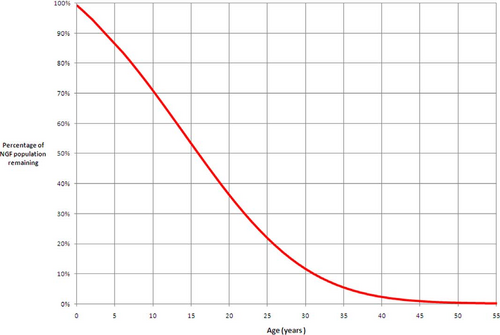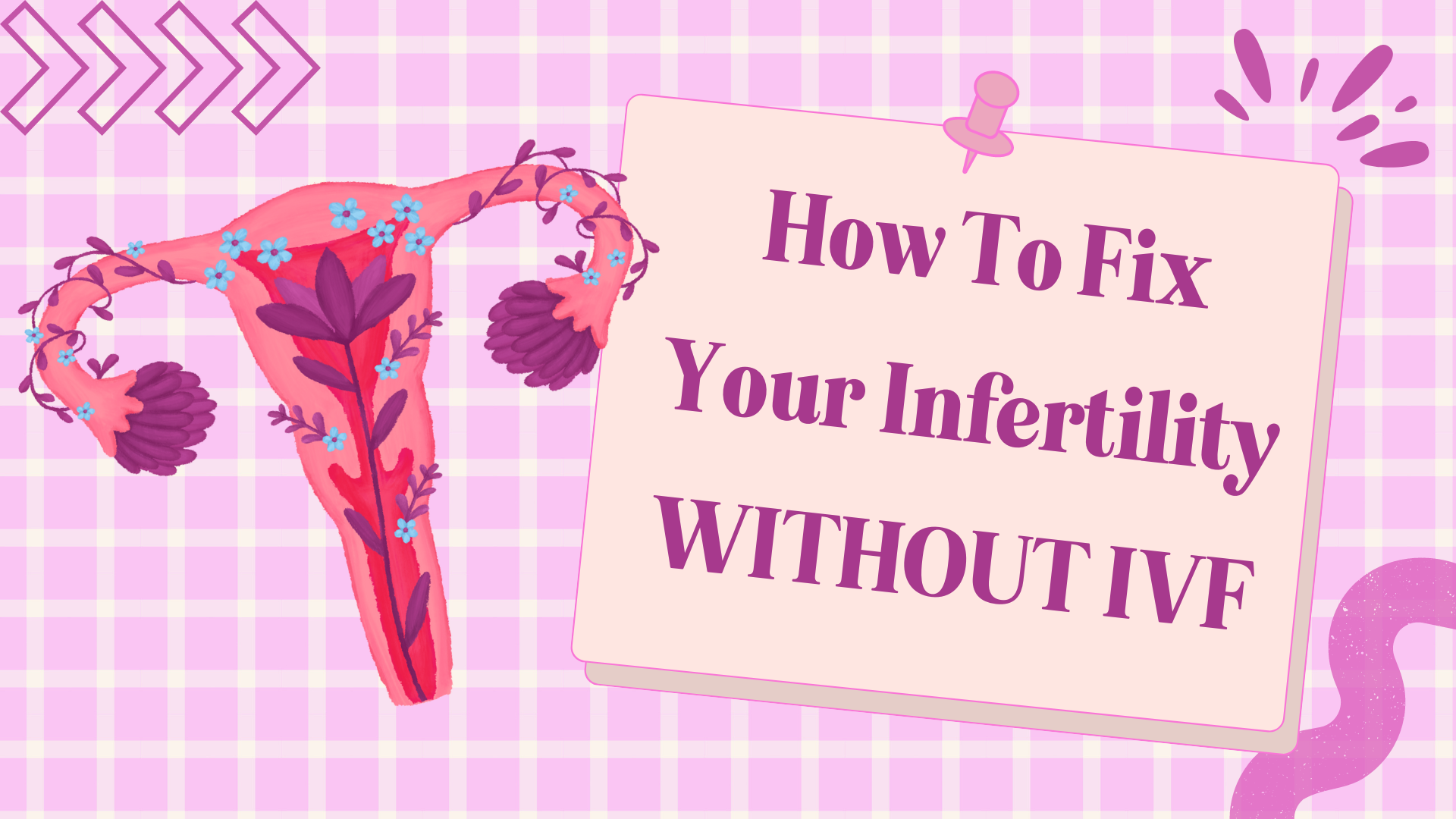Nowadays, fertility treatments are all the rage in India. Celebrities and influencers are turning to IVF to have children and posting their journey on social media.
While this is great and IVF DOES help many women conceive…this is causing all women to believe that they can take their hormonal health for granted and STILL have healthy babies at any age.
Unfortunately, this is far from the truth.
Take my friend Taylor for example. She had been struggling to conceive for three long years. She turned to IVF, hoping for a breakthrough. But instead, by the age of 44, she experienced two devastating losses and underwent four rounds of IVF. The doctors offered little to no hope, pointing to her age and suggesting that her chances were slim without more invasive treatments.
Taylor decided to take matters into her own hands. She stopped using fertility drugs, invasive procedures, or expensive treatments. Instead, she made significant changes to her lifestyle, focusing on her health and well-being.
At 44, Taylor gave birth to her first child, a healthy baby boy.🙂
Here’s a picture of them:
Before we dive deeper into how to fix infertility naturally, it’s crucial to understand why you might be struggling to conceive in the first place. The female body is complex and intricate, and infertility is a complex issue.
There are a lot of factors that can come into play. Let’s break down some of the most common causes.
1. Hormonal imbalances
Hormones are like the control centre for your menstrual cycle, ovulation, and overall reproductive health. When they’re out of balance, it will make it harder to get pregnant or stay pregnant.
- PCOS (Polycystic Ovary Syndrome): If you’ve got irregular periods, excess hair growth, acne, weight gain, or cysts on your ovaries, PCOS might be the culprit. This condition affects 1 in 5 women and will impact your fertility.
- Thyroid Issues: Your thyroid hormones control many metabolic functions in the body. An underactive thyroid (hypothyroidism) or overactive thyroid (hyperthyroidism) affects your metabolism, nervous system, digestive system, and reproductive system. It can disrupt ovulation and cause irregular menstrual cycles, lead to luteal phase defects, and increase the risks of miscarriage and pregnancy complications.
- Hyperprolactinemia: Ever heard of this? It’s when your body produces too much prolactin, the hormone that helps with milk production. Too much prolactin can interfere with ovulation and cause your periods to go MIA. It can also cause low progesterone which then leads to luteal phase defects that result in a thin uterine lining that is not conducive to embryo implantation.
2. Structural issues
Sometimes, physical problems in your reproductive system can be the roadblock.
- Endometriosis: This is when tissue that normally lines your uterus starts growing outside of it, like on your ovaries or fallopian tubes. It’s painful, causes inflammation, and can create scar tissue that blocks the egg and sperm from meeting up.
- Uterine Fibroids: These are non-cancerous growths in your uterus. They are usually harmless, but they can sometimes interfere with implantation or block the fallopian tubes.
- Fallopian tube blockages: If your fallopian tubes are blocked-maybe from scarring or an infection like pelvic inflammatory disease (PID), the egg might never make it to the uterus, and that’s going to make it very challenging to conceive.
3. Lifestyle Factors
Your lifestyle choices can have a huge impact on your fertility.
- Diet and nutrition: What you eat matters a lot more than you think. A diet low in essential nutrients and high in processed foods will negatively impact your hormone production, egg quality, and menstrual cycle. On the flip side, a diet full of whole foods, healthy fats, and lean proteins can support your reproductive health.
- Exercise: Regular exercise is great, but too much of it can also be harmful. If you’re over-exercising and not eating enough to make up for the burned calories, your body will be in an energy deficit. If your body is in an energy deficit for a prolonged period of time, it will impact your cycles and cause you to have irregular or missing cycles. Obviously, conceiving when you have missing cycles is not possible.
- Weight: Being underweight or overweight can both cause fertility issues. Too much body fat can lead to systemic inflammation, insulin resistance and high hormone levels, while too little can lead to not enough hormones being produced. The female body needs an adequate amount of FAT to do its job. Too much and it gets in the way, too little and it’s impossible to function.
- Stress: Chronic stress is a fertility killer. High cortisol levels will suppress your reproductive hormones, which will then impact ovulation and make it harder to get pregnant.
4. Environmental Toxins
We’re all exposed to environmental toxins, and unfortunately, they can mess with your fertility too.
- Endocrine disruptors: These are chemicals that can interfere with your hormones. They’re found in plastics (like BPA), pesticides, and even some personal care products.
- Heavy Metals: Exposure to heavy metals like lead, mercury, and cadmium can damage your reproductive organs and disrupt your hormone production.
5. Age

We can’t ignore this one. As you get older, the number and quality of your eggs decrease. After 35, it gets even harder to conceive, and there’s also a higher risk of miscarriage and chromosomal issues.
What is IVF?
IVF, or In Vitro Fertilisation, is a process where an egg and sperm are combined outside the body in a lab to create an embryo. This is then implanted into the uterus to hopefully achieve a successful pregnancy.
Why IVF is a Band-Aid Solution
IVF has helped many women conceive, but in all honesty, it is a band-aid solution that doesn’t address the underlying causes of infertility.
Here’s why:
- Doesn’t address the root cause: IVF doesn’t fix the hormonal imbalances, poor egg quality, or other health issues that are preventing natural conception. It just bypasses all of this by fertilising the egg outside the body and then implanting it into the uterus.
- Temporary Fix: Even if IVF is successful, you cannot ignore underlying health problems. These issues can lead to complications during pregnancy, such as gestational diabetes, preeclampsia, and even preterm birth. If you don’t address the root cause, you will continue to struggle with conceiving in the future.
- Impact on baby’s health: Your health at the time of conception plays a crucial role in the health of the baby. If the mother’s body is not in optimal condition, it can affect the baby’s development, leading to potential health issues down the road.
The true cost of IVF
IVF is not just (very) financially expensive, it also comes with emotional and physical costs.
- Financial strain: IVF treatments can cost anywhere from 2-3 lakhs per cycle, and you need 2-3 cycles (minimum) to get some results.
- Emotional toll: The emotional rollercoaster of hope and disappointment with each cycle can lead to anxiety, depression, and strain on relationships.
- Physical Demands: The process of IVF involves hormone injections, invasive procedures, and potential side effects such as ovarian hyperstimulation syndrome (OHSS), which can be painful and dangerous.
- No Guarantee of Success: Despite the high cost and physical toll, IVF does not guarantee a pregnancy. Success rates depend on age and other factors, and many couples have to go through several cycles without achieving a pregnancy.
So if not IVF…what’s the solution?
Is there a better way?
There’s a simple, natural and easy way to do this.
Yes.
Here Are Some Ways to Address the Root Cause of your infertility:
- Balancing hormones: This can be achieved through diet, exercise, stress management, and the use of natural supplements.
- Improving egg quality: Antioxidant-rich foods, reducing exposure to toxins, and taking supplements such as CoQ10 can improve egg quality.
- Supporting gut health: A healthy gut is crucial for hormone regulation and overall fertility. Probiotics, prebiotics, and a diet rich in fiber help maintain a healthy gut microbiome.
- Detoxifying the body: Reducing exposure to environmental toxins by using natural personal care products, eating organic foods, and filtering water can help reduce the body’s toxic load and improve fertility.
- Optimizing nutrition: Focus on nutrient-dense foods that support reproductive health, including eggs, dairy, red meat, fish, ripe fruit, leafy greens, and nuts/seeds.
This is just a cursory overview of what needs to be done, but the exact protocol will be different for each woman. Every woman has a unique body, health history and lifestyle/diet preferences, so she’ll need a personalised approach to heal her body and boost her fertility.
In the case of Taylor, she recently shared the top things she did to fix her hormones & get pregnant (with her first child) at 44:
- I stopped drinking caffeine completely and reduced alcohol to a few glasses a month (there are some beneficial properties of alcohol for those with low sex hormones but only in moderation as you don’t want cortisol or blood sugar to spike).
- I ate a protein focused breakfast within an hour of waking.
- I switched from HIIT & weight lifting to walking daily.
- I started taking probiotics & prebiotics daily. This helps ensure good vaginal bacteria is present and PH is balanced. I also researched the right supplements to take daily for enhancing egg quality, fertility & mood regulation.
- I switched from plastic and teflon to glass and stainless steel in the kitchen.
- I started eating more seafood, eggs, butter, olive oil, carrots, beets, sweet potatoes, legumes, nuts, whole clean bread, rice/potatoes, fruits & veggies and cut back on meat (high quality meat is good but not in lieu of the rest). I had already cut out processed foods.
- I switched to FULL FAT dairy and raw milk.
- I slowed down, took more breaks, rested more (reduce stress) and I meditated daily. Focus on emotional regulation practices to keep cortisol low.
- I made sure to get 15–30 mins of early sunshine in addition to my daily walks
- I tracked and sync with my cycle (including the obvious intimacy activities as well)
- I switched out endocrine disrupting products for natural products (hair, nails, skin, makeup, bath, clothes, healthcare products, etc).
- I started using an air purifier & an air humidifier.
- I started using a reverse osmosis filter system with remineralized water.
- I prioritised 8 hours of sleep.
- I focused my free time on maximising quality time bonding and creating feel good hormones with my mister & family.
These changes didn’t just help Taylor get pregnant….they essentially reversed her reproductive age and created an environment where her future baby could thrive.
The Akhanda Approach
At Akhanda, we believe in a holistic, individualised approach to fertility. Our program focuses on healing the body from the inside out, addressing the root causes of infertility.
We guide women through personalised diet and exercise plans, stress management techniques, and lifestyle changes that support reproductive health. Our approach is grounded in the belief that by correctly nurturing the body and mind, you can heal your fertility and increase their chances of conceiving naturally.
We’ve written an entire guide on FertilityMaxxing: How to Optimize Your Fertility. You can find it here:
Our aim is to help women like you regain your health, balance your hormones, and finally achieve your dream of becoming a mother, without the need for invasive procedures like IVF.


Leave a Reply